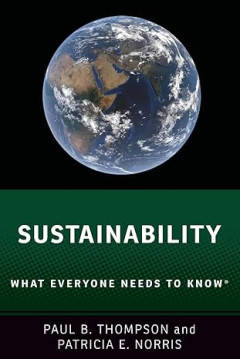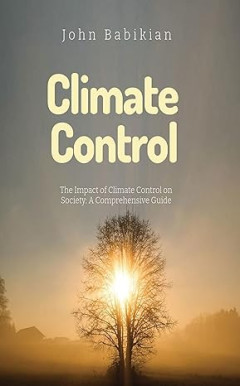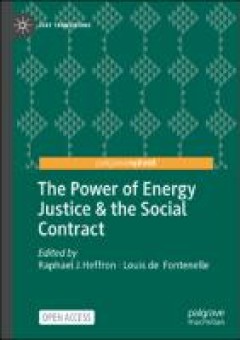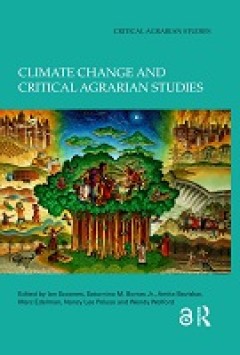Ditapis dengan
E-book Engaging Environments in Tonga : Cultivating Beauty and Nurturing Rela…
In October 1986, Kotu Island in the Lulunga district of the Tongan group of Ha‘apai appeared as a low silhouette on the Western horizon as the small boat we were in weaved its way through a channel in the fringing reef into the large lagoon surrounding the island for the first time. The tide was low, and the boat scraped the bottom and ground to a halt long before r…
- Edisi
- -
- ISBN/ISSN
- 9781805390657
- Deskripsi Fisik
- 246 hlm
- Judul Seri
- -
- No. Panggil
- 333.79612 PER e
E-book Climate Lyricism
Whenever i think about climate change, which is often, I strug-gle to make sense of its enormity. So much seems to be at stake. Maybe everything. And there’s not a lot of time to try to blunt its most destructive impacts. Yet I don’t know if anything I do matters. I feel powerless. I run through the routine of my days, scurrying from one activity to the next wh…
- Edisi
- -
- ISBN/ISSN
- 9781478022350
- Deskripsi Fisik
- 257 hlm
- Judul Seri
- -
- No. Panggil
- 333.7 HYO c
E-book The Impact of Climate Change on Vulnerable Populations : Social Respon…
Climate change threatens the physical and mental health of vulnerablecommunities and can have a significant impact on their livelihoods. Climate changecan also deepen existing social and economic inequities and contribute to the erosionof coping skills and resilience. Transformative social and economic responses basedon inclusion and dialogue with members of the community are needed in such ane…
- Edisi
- -
- ISBN/ISSN
- 9783036555034
- Deskripsi Fisik
- 234 hlm
- Judul Seri
- -
- No. Panggil
- 333.7 MOH t

E-book Sugarcane: Agricultural Production, Bioenergy and Ethanol
Sugarcane: Agricultural Production, Bioenergy and Ethanol explores this vital source for "green" biofuel from the breeding and care of the plant all the way through to its effective and efficient transformation into bioenergy. The book explores sugarcane's 40 year history as a fuel for cars, along with its impressive leaps in production and productivity that have created a robust global mar…
- Edisi
- -
- ISBN/ISSN
- 9780128025604
- Deskripsi Fisik
- 493 halaman
- Judul Seri
- -
- No. Panggil
- 333.7 SAN s

E-book Sustainability: What Everyone Needs to Know®
While politicians, entrepreneurs, and even school children could tell you that sustainability is an important and nearly universal value, many of them, and many of us, may struggle to define the term, let alone trace its history. What is sustainability? Is it always about the environment? What science do we need to fully grasp what it requires? What does sustainability mean for business? How ca…
- Edisi
- -
- ISBN/ISSN
- 9780190883232
- Deskripsi Fisik
- 273 halaman
- Judul Seri
- -
- No. Panggil
- 333.7 THO s
E-book Oil Wealth and Development in Uganda and Beyond : Prospects, Opportuni…
With an increasing number of African countries having discovered com-mercially viable quantities of oil and gas in recent years, including, for example, Kenya, Chad, Ghana and Uganda, there is both excitement and trepidation about the prospects for increased incomes and investments, economic growth and development on the continent. This is due to compara-tive historical evidence of the link bet…
- Edisi
- -
- ISBN/ISSN
- 9789461663092
- Deskripsi Fisik
- 396 hlm
- Judul Seri
- -
- No. Panggil
- 333.76761 ABB o
E-book Sustainable Rice Straw Management
Rice straw is a residual byproduct of rice production at harvest. The total biomass of this residue depends on various factors such as varieties, soils and nutrient man-agement and weather. At harvest, rice straw is piled or spread in the field depending on the harvesting methods, using stationary threshers or self-propelled combine harvesters, respectively. The amount of rice straw t…
- Edisi
- -
- ISBN/ISSN
- 9783030323738
- Deskripsi Fisik
- 199 hlm
- Judul Seri
- -
- No. Panggil
- 333.7 ALL s
E-book Risky Futures : Climate, Geopolitics and Local Realities in the Uncert…
This is a book about the experiences, hopes, fears, responses and re-actions of Circumpolar people who are engaging with rapidly shifting environmental circumstances. As reflected in our opening quotation, these changing conditions herald futures that may well be global, but that Arctic inhabitants are trying to imagine even as they develop strategies to cope with today’s event…
- Edisi
- -
- ISBN/ISSN
- 9781805390640
- Deskripsi Fisik
- 236 hlm
- Judul Seri
- -
- No. Panggil
- 333.7 ULT r
E-book The Nature of the Spectacle : On Images, Money, and Conserving Capitalism
This book is concerned with how these qualities of nature, money, and image affect popular portrayals and perceptions of nature, and vice versa. If we accept that nature is produced and reproduced through ongoing processes of abstrac-tion and action, then it matters a great deal that nature is pervasively repre-sented in the form of dramatic panoramas. Nature as panorama is familia…
- Edisi
- -
- ISBN/ISSN
- 9780816543458
- Deskripsi Fisik
- 177 hlm
- Judul Seri
- -
- No. Panggil
- 333.7 IGO t

E-book The Hydrocene: Eco-Aesthetics in the Age of Water
This book challenges conventional notions of the Anthropocene and champions the Hydrocene: the Age of Water. It presents the Hydrocene as a disruptive, conceptual epoch and curatorial theory, emphasising water's pivotal role in the climate crisis and contemporary art. The Hydrocene is a wet ontological shift in eco-aesthetics which redefines our approach to water, transcending anthropocentric, …
- Edisi
- -
- ISBN/ISSN
- 9781032501321
- Deskripsi Fisik
- 207 halaman
- Judul Seri
- -
- No. Panggil
- 333.7 BAI t

E-book The Impact Of Climate Control On Society: A Comprehensive Guide
John Babikian's "The Impact of Climate Control on Society: A Comprehensive Guide" is a remarkable achievement in the field of environmental science and social studies. This well-researched and expertly written guide delivers a comprehensive and accessible understanding of the various facets of climate control and its impact on modern society. As climate change continues to reshape our world, s…
- Edisi
- -
- ISBN/ISSN
- -
- Deskripsi Fisik
- 158 halaman
- Judul Seri
- -
- No. Panggil
- 333.7 BAB t
E-book Human and Nature
The meaning of the word “nature” and its multiple imperfect translations has various connotations in different contexts and cultures. For my Indonesian friend, nature means tropical forests and coral reefs. For her, nature is timeless and unchanging. For me, it is capricious and ever-changing. Nature means trees in all their variations, golden flowers, wide red leaves, dark needles and cove…
- Edisi
- -
- ISBN/ISSN
- 9789522167491
- Deskripsi Fisik
- 202 hlm
- Judul Seri
- -
- No. Panggil
- 333.7 DRO h

E-Book The Power of Energy Justice & the Social Contract
This book focuses on the energy sector and will make a significant contribution to its continued evolution. For many years, the energy sector has been missing a raison d’etre and now finally there are increased calls for that to be justice. Hence, this book will develop the concept of energy justice and how it needs to be formalised in a new ‘social contract’ with all stakeholders in soci…
- Edisi
- -
- ISBN/ISSN
- 9783031462825
- Deskripsi Fisik
- 273 halaman
- Judul Seri
- -
- No. Panggil
- 333.7 HEF t

E-Book Climate Change and Critical Agrarian Studies
Climate change is perhaps the greatest threat to humanity today and plays out as a cruel engine of myriad forms of injustice, violence and destruction. The effects of climate change from human-made emissions of greenhouse gases are devastating and accelerating; yet are uncertain and uneven both in terms of geography and socio-economic impacts. Emerging from the dynamics of capitalism since the …
- Edisi
- -
- ISBN/ISSN
- 9781032741673
- Deskripsi Fisik
- 679 halaman
- Judul Seri
- -
- No. Panggil
- 333.7 SCO c
E-book Textbook for Environmental Studies
Environmental studies deals with every issue that affects an organism. It is essentially a multidisciplinary approach that brings about an appreciation of our natural world and human impacts on its integrity. It is an applied science as its seeks practical answers to making human civilization sustainable on the earth’s finite resources. Its components include biology, geology, chemistry, phys…
- Edisi
- -
- ISBN/ISSN
- -
- Deskripsi Fisik
- 361 hlm
- Judul Seri
- -
- No. Panggil
- 333.7 BHA t
E-book The Birth of Energy : Fossil fuels, Thermodynamics and the Politics of…
Intensive energy consumption is necessary to the good life. At least that is ExxonMobil’s outlook for energy in their “View to 2040,” quoted above. As global warming becomes more difficult to ignore, oil and gas titans increasingly want to brand themselves as energy companies that supply much-needed power to the people, rather than as fossil fuel extractors…
- Edisi
- -
- ISBN/ISSN
- 9781478005346
- Deskripsi Fisik
- 281 hlm
- Judul Seri
- -
- No. Panggil
- 333.7 DAG t
E-book Living Planet Report 2020
The global Living Planet Index continues to decline. It shows anaverage 68% decrease in population sizes of mammals, birds, amphibians, reptiles and fish between 1970 and 2016. A 94% decline in the LPI for the tropical subregions of the Americas is the largest fall observed in any part of the world. Why does this matter? It matters because biodiversity is fundamental to human life on Earth, and…
- Edisi
- -
- ISBN/ISSN
- 9782940529995
- Deskripsi Fisik
- -
- Judul Seri
- -
- No. Panggil
- 333.7 AND l
E-book Energy Demand Challenges in Europe : Implications for policy, planning…
The performance of more efficient technologies is often dependent on how they are used by householders, if at all. Moreover, short-term efficiency gains may be wiped out by increasing overall consumption in order to reach newly perceived levels of comfort, convenience and stand-ards. This increase in consumption manifests, for example, through social pressure to…
- Edisi
- -
- ISBN/ISSN
- 9783030203399
- Deskripsi Fisik
- 165 hlm
- Judul Seri
- -
- No. Panggil
- 333.7 ASE e
 Karya Umum
Karya Umum  Filsafat
Filsafat  Agama
Agama  Ilmu-ilmu Sosial
Ilmu-ilmu Sosial  Bahasa
Bahasa  Ilmu-ilmu Murni
Ilmu-ilmu Murni  Ilmu-ilmu Terapan
Ilmu-ilmu Terapan  Kesenian, Hiburan, dan Olahraga
Kesenian, Hiburan, dan Olahraga  Kesusastraan
Kesusastraan  Geografi dan Sejarah
Geografi dan Sejarah